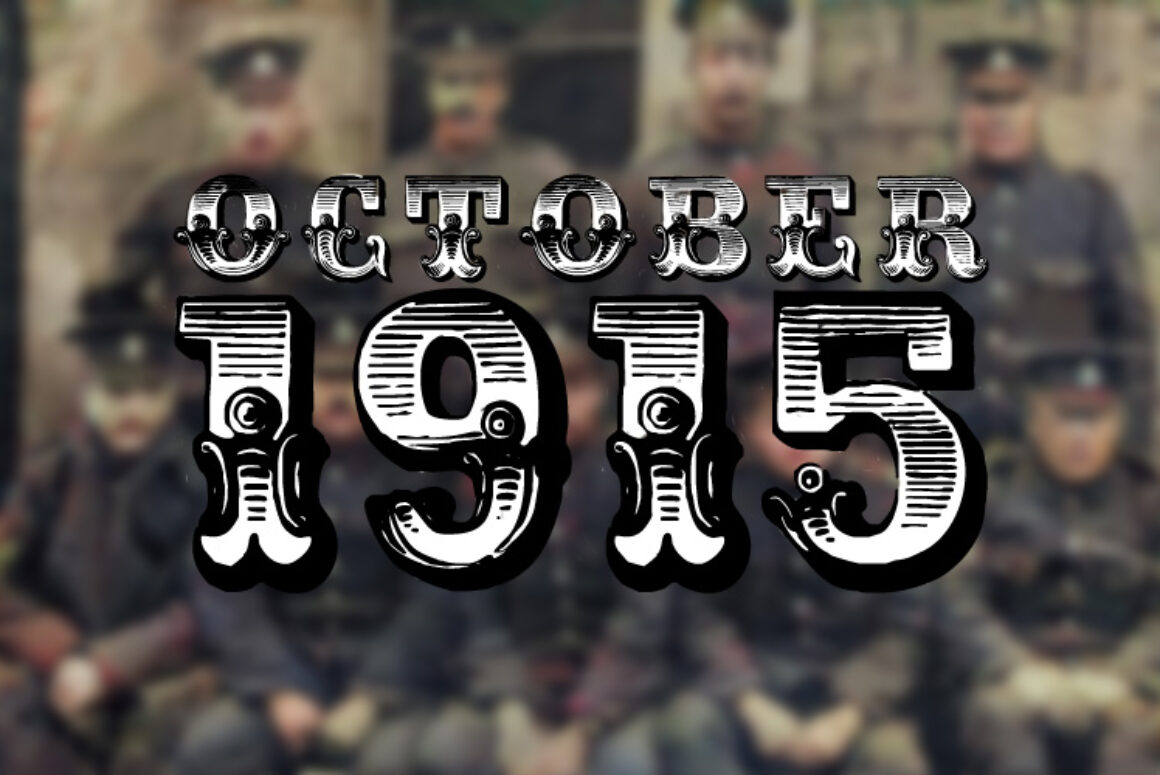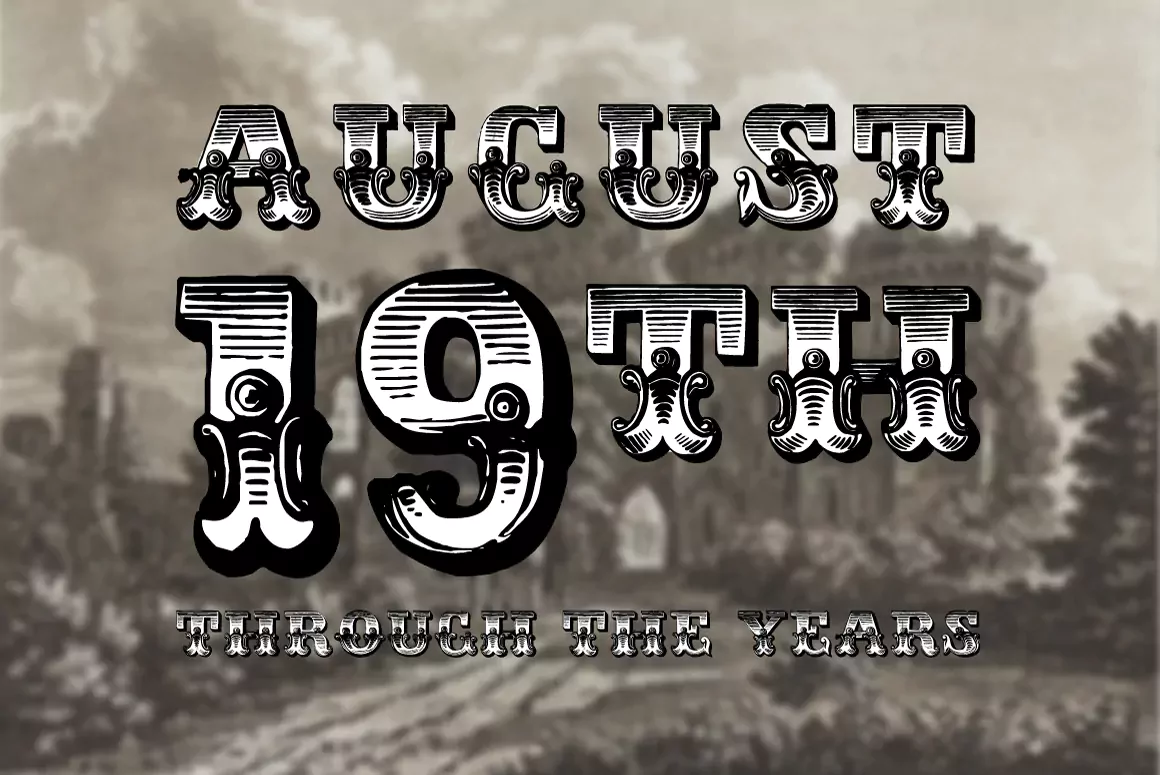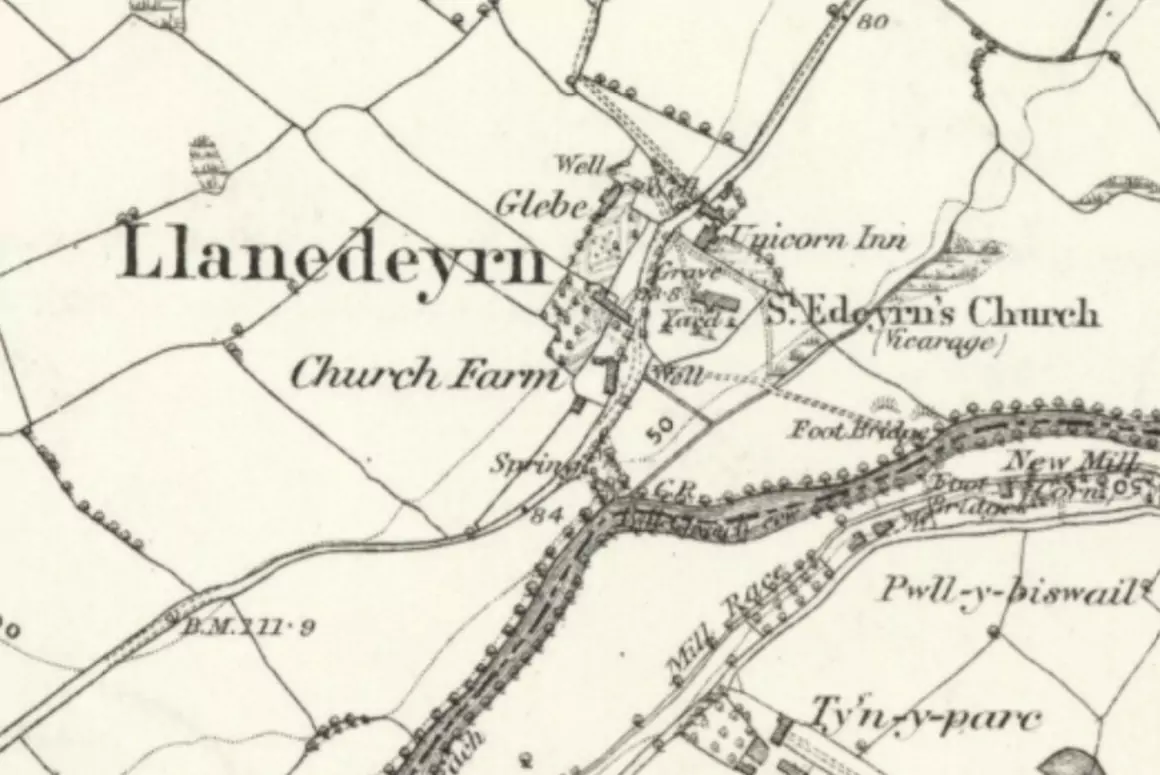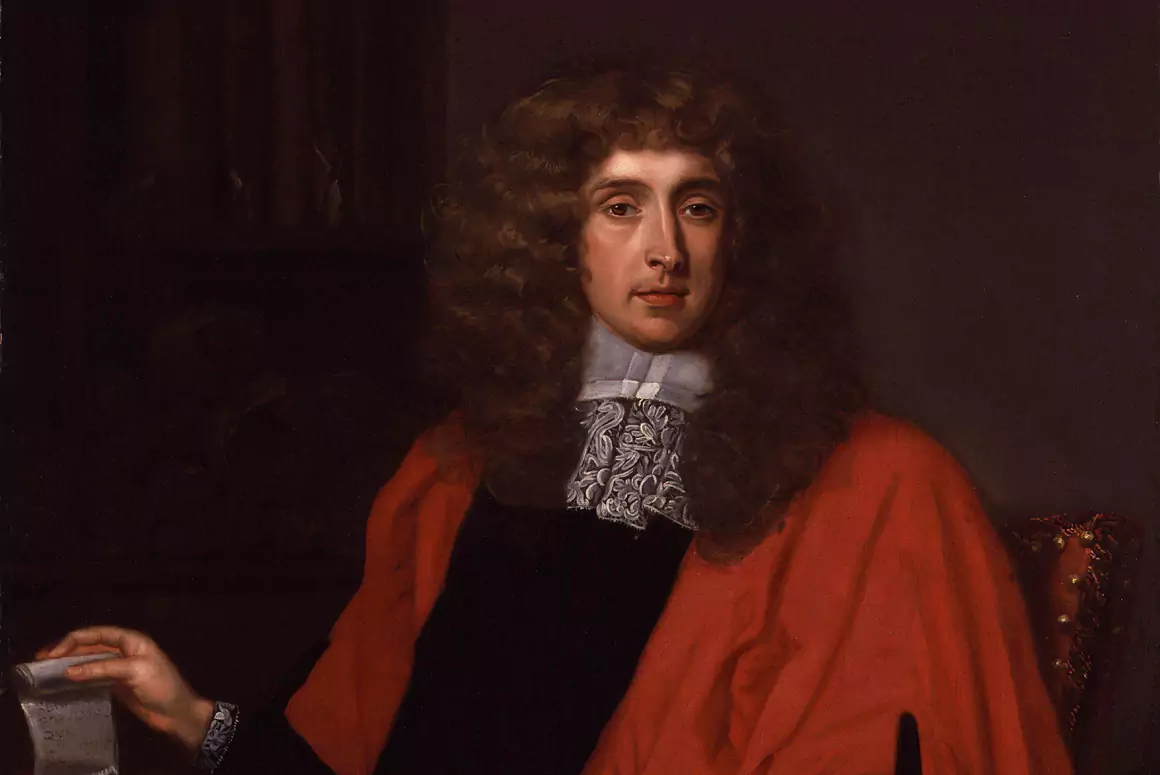![]()
This month we are looking at The Amman Valley Chronicle and East Carmarthen News in 1915, although to be honest, it hadn’t been the newspaper’s greatest year. You see, publication had been suspended between 28 January and 2 September 1915 following the destruction of their printing works by fire. This was not a good time for them to suspend trading, for there was a huge amount of local news as a result of the Great War. Sales would have been high since the paper was the best way to keep up with the heroism – and the casualties of the local young man. You can see this in the edition for 14 October, which indicates how the chilling tentacles of war reached out even into west Wales. And, before we start, please remember that everything here comes from just one edition of the Chronicle, and largely from one page.
On page five, there is a list of all the young men who had volunteered, bravely, innocently, signing up for a Big Adventure. The next section is not so good. It is called Local Warriors and it is not much more than a terrible list of wounded soldiers, missing soldiers, dead soldiers; ordinary lives, ripped apart or lost.

Mr. William Jones, in Lower Brynamman received notification that his son, Arthur Jones, of the Royal Welch Fusiliers was missing. He was a drummer who previously had been a member of the Brynamman Fife Band. Private Elias Smith, from Glanamman, had been missing in Gallipoli since the first week of August.
The wife of Sergeant Tom Davies, of Llandilo, may have had better news, though no one could be quite sure. She had received a letter to say that her husband had been killed at Gallipoli in August. Now she received a second one to say that he had been wounded and was in hospital. Everyone was confounded, because the fatal news was apparently confirmed on unimpeachable authority. It is hoped that the latest is also the truest report.
Private W. R. Thomas was possibly one of the luckier ones. He was invalided out of the Dardanelles suffering from dysentery, and was recovering at home at 72 High Street, Llandovery, on sick furlough.
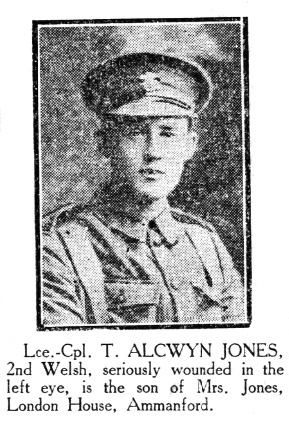
Corporal Twist of Ammanford has had his right hand amputated.
Lance Corporal Alcwyn Jones of Ammanford has been seriously wounded in the left eye.
Corporal Jack Williams of Ammanford has been killed in a bayonet charge.
News of the death of Private Arthur Williams, of Ammanford, had been received by his mother. It came from a nurse at a military hospital.
l am sorry to tell you that your son, Private A. Williams, died last night of wounds received in action. He was admitted at 8 p.m. and was unconscious, and died very peaceably at 11. He was suffering from abdominal wounds, and the surgeon had no hope from the first. I wish I had more to tell you. It is terribly hard for you to only get bare facts, but unfortunately it is all I can do.
Arthur’s friend Stephen Prout, who was wounded in the same charge and was in hospital in Rouen, also sent a letter.
Arthur was the first to go over the parapet. I know you will be glad to know he was not bruised with wounds, as it was not shrapnel but a bullet that caused his death. Poor Arthur, after he got wounded, a chap helped him to take his pack off and to creep all the way back to our trenches.
The last letter sent by Arthur to his sister was dated 20 September, in which he said he was in the best of health, and asked to be told whether a helmet and scarf had been sent him, as he had not received them. He ended the letter with tell mother I am as happy as a lark, and to be proud that she has got two sons fighting for our country. Trusting that God will spare us to come home again after doing our duty. Remember me to all I know.
It is hard to know how much comfort any message from the front might bring, other than proving that their own soldier was alive when it was written. It was never the case that no news was good news. You can see that anxiety in this comment in the newspaper about Tom Hughes from Llandeilo.
Writing material is evidently so scarce in the Dardanelles that Private Tom has not at present found time or material to communicate with his friends. No doubt we shall soon be hearing from him.
The newspaper published letters from soldiers which contained details that could never offer comfort and only make things worse. I cannot see much reassurance in being told that the ‘boys from Llandeilo’ were highly regarded for leading bayonet charges.
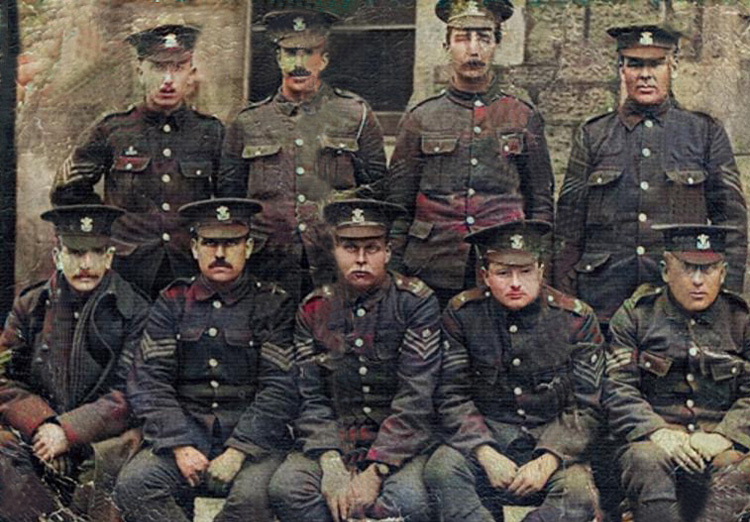
What I find really interesting is that the newspaper prints a translation of a letter found on the battlefield by a corporal from Glanamman. It was from a German woman to her soldier husband, Musketeer Emil Wenzel. You will see the similarities with the contents of Arthur Williams’ last letter except here is the added poignancy of a wife’s anxieties. Poor Frau Wenzel, voicing the dreadful anxieties of all those left behind, no matter which side they were on.
Dear Emil,-It is Sunday again. It is a very sultry day to-day and it is beginning to rain a little. Dear Emil, we have waited the whole week in vain for news of you. Why do you not write? And we do not know either what has really happened to Charles. Is he dead or is he taken prisoner? He has not written for over three weeks. Karl is also wounded in Russia. He must have been shot in the knee.
Do write a little oftener even if you do not write so much every time; then, at any rate, we should not be so troubled. How do things go with you? Are you still well? We are all well, thank God…have you received the parcel with the butter, and was it good? Has parcel No. 3 yet been found, or have you not received it?
Dear Emil, will peace not soon be restored, and you come back home? I have no more news, so I will close. May God protect you and be with you, and bring you safe home again.
Meanwhile, Corporal Joe Scarsi, was sending gifts from France to his family on College Street in Ammanford. These included a piece of German shrapnel casing that he picked up and a portion of the wing of a German aeroplane which he saw destroyed. Both the pilot and observer were killed. It is we are told, saturated with the blood of the dead Huns.


